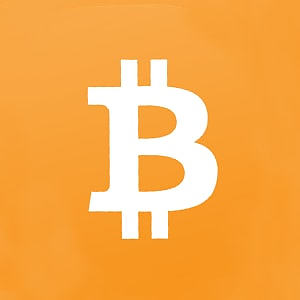The impact of cryptocurrencies on the global economy

Cryptocurrencies often make headlines in times of market buzz — when Bitcoin is skyrocketing or a major crypto exchange goes bust. This is the reason why crypto is often perceived by the public as a frivolous investment tool with high risk. Apparently, digital assets are so much more: in less than 15 years since the advent of Bitcoin, cryptocurrencies are transforming the way the global economy functions.
Instant remittances
In the traditional economy, making a money transfer may take hours and even days — especially if it’s international and a few intermediaries are involved. By contrast, crypto transactions are settled in minutes or seconds, irrespective of their volume and destination.
This changes the way people exchange money globally — and especially in the growing economies where millions of citizens are unbanked, while high inflation rates devalue their money. Sometimes harsh tax laws in developing countries are another factor that boosts crypto transaction volume. That’s what recently happened in India — the Bitcoin peer-to-peer trading volume increased 2X in 2022 even amidst the bear market.
Banks have to adapt to the increased presence of crypto
The unprecedented opportunities have brought about 420 million users in crypto globally, and this number is predicted to hit 1 billion by 2030. That creates a challenge for traditional banks they can’t ignore.
Crypto in banking
Raiffeisen Bank, Deutsche Bank, and other mastodons are obtaining their licenses to introduce crypto functionality to their customers. Neobanks and payment platforms such as Revolut and PayPal have already implemented tools allowing clients to buy, sell, hold, and stake crypto. This way financial institutions are trying to withstand the competition — and those that don’t embrace crypto risk staying on the sidelines.
What’s more, the improved accessibility of crypto (once it gets to major bank apps) promises to make digital assets even more popular, further strengthening their position in the global financial market.
Banking in crypto
Conversely, crypto businesses are now increasingly implementing banking solutions to expand to a massive audience. Those include crypto savings accounts with APR higher than at the banks and some more advanced investing opportunities that are only possible in the crypto landscape. For instance, an interest account at Choise.com can bring you up to 13.5% APY from digital assets. It also offers dual-currency interest accounts with ~50% APY and crypto cards.
Crypto banks introduce an asset management framework that all non-crypto bank customers are familiar with — but with digital assets instead of fiat currencies. This facilitates user experience while offering a higher yield, which makes crypto banking solutions highly demanded.
A crypto bank is one of the hardest products to develop, but there are solutions that let you launch it using pre-made software in just a few weeks — or enhance an existing platform with crypto banking features that will pay off within a year. This is possible with white label crypto banks like Vault by Choise.com. Over 6 years of operation, the platform has spent $60M on development and licensing in 170+ countries — and now allows you to launch a crypto bank under your own brand a hundred times cheaper and faster.
Investment opportunities open to all
Never before in history has it been possible to invest so easily. Traditional banks do offer convenient investment tools, but they will never become permissionless like crypto. No registration is needed to store and exchange digital assets in a cryptocurrency wallet — and no one can freeze the funds in it. This opens investments especially to those lacking access to traditional financial infrastructure.
Ways to profit from crypto vary from holding and day trading to sophisticated DeFi mechanics. For many, digital assets have become a hedge against inflation. According to an NBC News poll, one in five Americans has invested in, traded, or used cryptocurrency.
Real-world asset tokenization: Changing the way things are owned
Of one the key features of crypto is that it eliminates middlemen and enables direct value exchange between peers. Smart contracts allow for translating this into a business perspective.
One of the most promising trends at the intersection of crypto and the traditional economy today is the tokenization of real-world assets (RWA). Ownership of stocks, bonds, commodities, real estate, etc. is transferred to the blockchain in the form of digital tokens, making them more liquid and accessible and enabling fractional ownership.
According to Boston Consulting Group, the market of RWA will grow 25X by 2030, hitting the $16.1 trillion mark. 10% of the entire world’s GDP, compared to today’s 0.4%, will be represented by tokenized assets. Tokenization appears to be more than just a trendy technology — it is changing the entire way people own and exchange physical assets.
National digital currencies – Governments’ response to crypto adoption
One of Satoshi Nakamoto’s criticisms of the traditional economy was the irresponsible monetary policy of financial authorities that favored inflation. Bitcoin was created with a predetermined number of coins gradually entering circulation, making it resistant to inflation. But while Bitcoin hasn’t become the heart of the global economy so far, cryptocurrencies do take, to some extent, one of the central banks’ functions: money issuance.
To keep up with the competition, central banks have begun testing CBDCs — central bank digital currencies, or national currencies in a digital format. These state-controlled money are supposed to introduce fast and secure transactions, including cross-border remittances, and make money more inclusive. Meanwhile, critics point out that CBDCs open new surveillance opportunities to governments and may have unpredictable effects on the economy.
64 countries are now at an advanced stage of testing CBDCs, including China, India, and Australia. According to a Citigroup report, up to $5 trillion in CBDCs will be circulating by 2030.
Growing ties
Cryptocurrency is a global force that the traditional economy has to reckon with. Private banks implement crypto solutions, businesses put asset ownership on-chain, while central banks introduce digital fiat money.
Author

Andrey Diyakonov
Vault.ist
Andrey is a seasoned business development executive with a proven track record of engaging customers, strengthening partnerships, building and leading accomplishing teams in Financial Services, Crypto, Telco, Industrial Goods, and




